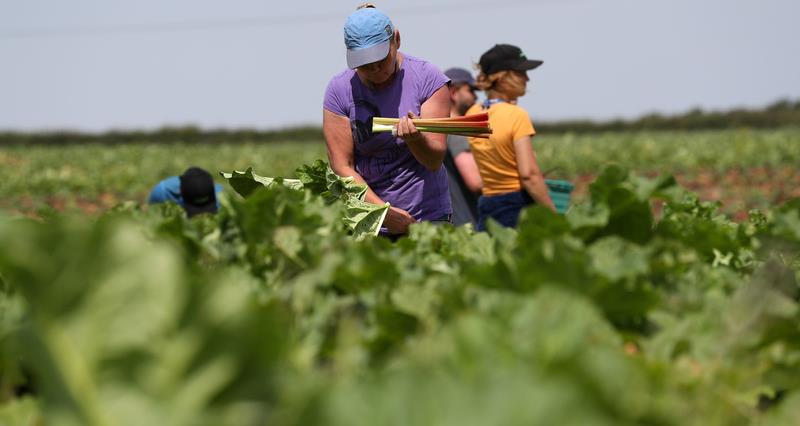The , jointly commissioned by Defra and the Seasonal Worker Taskforce, examines the feasibility and possible options for introducing EPP (Employer Pays Principles) into the UK horticulture value chain.
Under EPP, employers are required to bear all recruitment costs such as travel, visa and medical fees with the aim of preventing workers from incurring debt to secure employment which can lead to exploitation and debt bondage.
Following its publication today, the report's writers, Alma Economics, have found that:
“Employers care deeply about worker welfare and are already working closely across the supply chain to improve experiences.”
NFU President Horticulture and Potatoes Board Chair Martin Emmett
- Any additional costs that cannot be passed up the supply chain will put significant financial pressure on growers.
- Many growers operate on profit margins as low as 2%, and implementing EPP could force some out of business.
- While growers may be able to pass on some extra costs, they would still face serious losses, potential closures, job cuts and reduced production.
Gaps in the study
Following the report's publication, NFU Horticulture and Potatoes Board Chair Martin Emmett said: “Seasonal workers play a vital role in getting the nation’s favourite fresh fruit, vegetables and flowers onto supermarket shelves and without them the sector simply wouldn’t function.
“This review confirms what many growers have feared, that expecting employers to cover all extra costs could seriously damage UK horticulture. Most businesses already run on very tight margins, so this would push some over the edge. That is at odds with the government’s Food Strategy ambition to provide more easily accessible healthy food for the nation.
“There are some gaps in the study. For instance, it didn’t look into the prevalence or scale of any possible worker debt. This is an important issue that requires further thought to determine the best way to address it while also safeguarding the future of UK horticulture and food security.
“Employers care deeply about worker welfare and are already working closely across the supply chain to improve experiences. This review is part of that ongoing effort, and we will work with the taskforce to carefully consider the findings of the review and to agree next steps without putting the future of British farming and our food supply at risk.”
The Seasonal Worker Taskforce is made up of a range of stakeholders in the industry including, SWS (Seasonal Worker Scheme) operators, retailers, growers, trade associations and distributors and works to safeguard and ensure access to workers' rights in the UK.
This year the taskforce has:
- Delivered a programme of grower roadshows to bring the latest information on the seasonal worker scheme and best practice to the attention of UK growers.
- Worked with the International Office for Migration to raise awareness of workers in Central Asian source countries of working rights in the UK.
- Delivered ACAS hosted webinars for employers intended to improve workplace grievance mechanisms and the experience of seasonal workers in UK horticulture.
EPP study explained
Commissioned in November last year, the NFU has been working to ensure that the challenges facing the sector are fully understood and has a seat on the project advisory group.
The feasibility study follows the previous government’s response to the Shropshire Review of labour shortages in the UK food supply chain, in May, which included a commitment to ‘investigate the use of the EPP for the seasonal worker visa route’.
The issue was then pushed to the forefront of growers’ minds when, without consultation or impact assessment, assurance organisation Sedex unveiled its ‘version seven’ SMETA employee welfare audit, a supply chain requirement for many fresh produce businesses. That included the EPP, among several other areas of concern.
The increased interest in the idea comes as grower businesses continue to feel the squeeze of a hugely challenging operating environment, with further overheads due to changes in the Autumn Budget to employer National Insurance contributions, and to the National Living Wage.
Throughout the study the NFU has made it clear that, for many UK growers, any additional cost burden could stretch already taut bottom lies to breaking point.
More from �ʼһ���:

